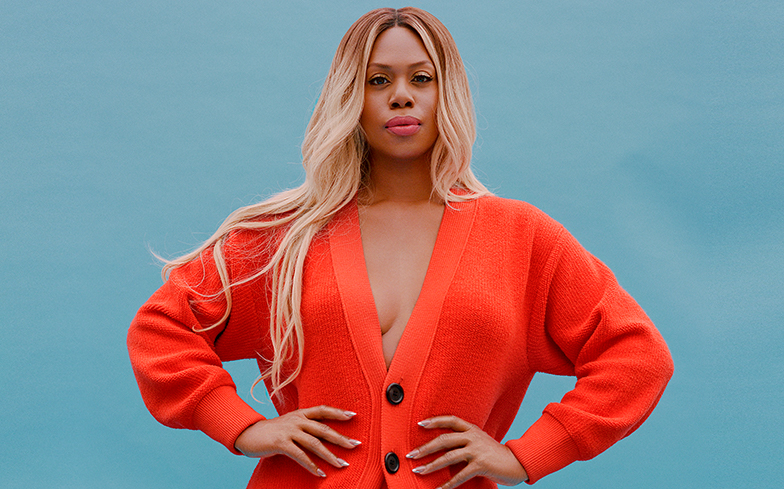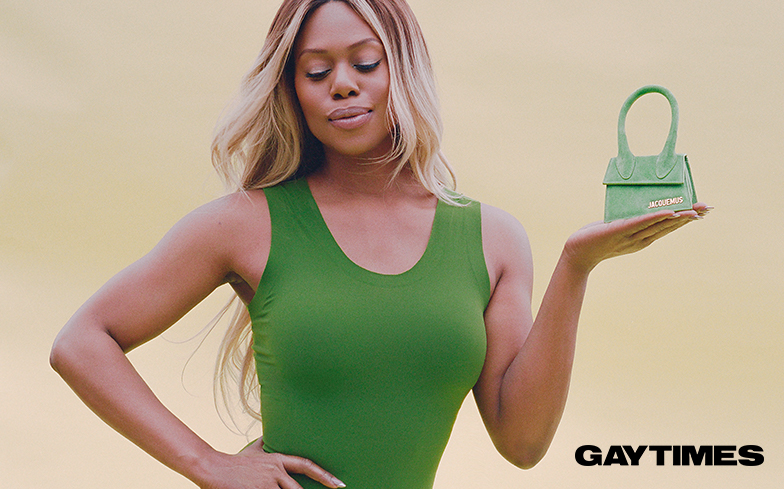
Laverne Cox is the human embodiment of trailblazer.
After launching to international acclaim with the success of Netflix’s Orange Is The New Black, she has since used her platform to raise awareness and fight for trans rights around the world. Her incredible #TransIsBeautiful hashtag has become an internet sensation, celebrating the everyday beauty of trans people – especially those that exist outside of the cisheteronomative ideals that persist throughout society.
But her journey to self-acceptance has been arduous, she has revealed to Gay Times.
“We have to make places safer for trans individuals, non-conforming people, for people of colour as racism is still… in America it’s a thing, globally a thing, but in the American south, it’s really bad.”
Laverne grew up in Alabama, and after displaying her difference from other children was sent into ‘reparative therapy’ by her third-grade teacher and mother.
“That was awful, horrible and shaming, and that was a moment that really instilled in me that I shouldn’t be as feminine as I was and should try to act differently. I did, kind of, but couldn’t really help myself and who I was.”
There is still no National ban on conversion therapy in the USA, and the process that victims endures can lead to long-term struggles with mental health.
“After that therapy experience, I had so much shame about knowing I was a girl. I always knew I was a girl and it was something my therapist knew. I internalised so much shame because of my therapist, my mother and my teacher, and everyone trying to ‘fix’ me.”
As we know, Laverne endured this experience and has used her own struggles to empower her global network of trans fans – just as she was empowered by trans women during her transition.
“It wasn’t until I moved to New York and met real trans women that I was able to accept I was a girl – to let me stop running from it. My transition, for me, was about moving out of denial and moving into acceptance about who I am.”
Speaking with former Gay Times cover star Peppermint, Laverne goes on to dissect the layers of racism in America, privilege, and addresses the violence that trans women of colour face every day in the USA.
Read the full conversation in the latest issue of Gay Times, available now.





